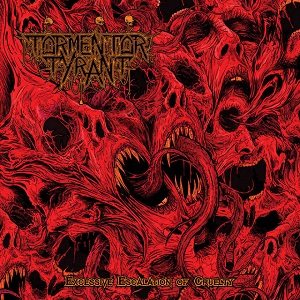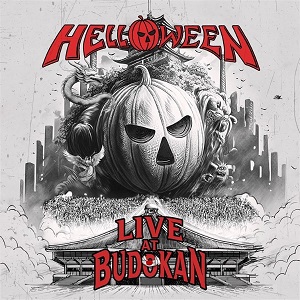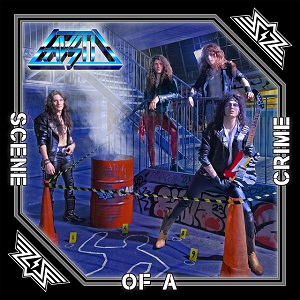PANTERA - A Vulgar Display Of Power On The 10th Anniversary Of Dime’s Death
December 7, 2014, 10 years ago

In the true spirit of the “celebration of life” concept, we at BraveWord’s wish to commemorate the tenth anniversary of the shocking assassination death of metal legend and all ‘round good guy Darrell Lance “Dimebag” Abbott through the celebration of what is widely regarded as Dime’s definitive work, Pantera’s second major label release, Vulgar Display of Power.
Dime died on December 8th, back in 2004, when he was shot execution-style on stage with his new band Damageplan, at the Alrose Villa in Columbus, Ohio. Three others were killed as well, including, eventually, the gunman. The metal community was thrown into shock, and the outpouring of grief from fans and fellow rockers alike ensured that Darrell would never be forgotten. Hereby follows our look back at Vulgar:

After knocking about Texas for three records as a high-octane, quite professional hair metal band, Pantera hired on a singer named Philip Anselmo for what was to be the band’s last indie album, Power Metal. Once a major label deal with Atco happened, Pantera instantly shocked the metal world with the cold, steely sound of Cowboys from Hell. The die was cast, and for five albums, Pantera would make only minor adjustments on the band’s patented sound, an attack that was high on mids and treble, an attack that was ruthlessly heavy yet clean and precise.
But despite years of rock solid records, fans have usually gravitated to the band’s second post-indie album, Vulgar Display of Power, when pressed for a favourite. It is the record that is perhaps the warmest, the most anthemic, the most legendary, of a daunting catalogue.
Phil agrees that Vulgar retains the most resonance. “Far Beyond Driven was beautiful because we came in at #1 on the Billboard charts,” reflects Phil on the band’s post-Vulgar trajectory, “and the tour was massive and it was our time, you know? It was the album after our sophomore attempt, the sophomore attempt being Vulgar Display of Power. And yes, that album seems to be pretty much everybody’s favourite record that we ever did; it’s spoken about a lot in those terms.”
“We had to kick Cowboys from Hell in the ass,” weighs in Vinnie on the Vulgar vibe. “With Vulgar, a lot of the material was written during the touring of Cowboys and it had a real live feel to it. The stuff always came across heavier live than on record, so we wanted to keep that vibe which we were getting off the live show and just put it on the record. We wanted this record to come across as a live record recorded in the studio and it had to be very intense. We didn’t have a whole lot of time to think about it. We toured extensively, about 300 dates last year, and as soon as we got off the road, we took two weeks off, went into a rehearsal studio, spent two weeks writing the material and went straight into the studio in August. We just wanted to make sure that while we felt good and while we still had the live vibe playing so much, that we wrote the material and got going with it. It’s totally against the grain; totally different than what was expected. It’s exactly what we wanted to do. We didn’t want to come back with a semi-commercial record; we wanted to go for the throat and do exactly what we do live. And that’s what we did.”
Following the rank aggression of “Mouth for War” is a mechanistic riffster called “A New Level,” a song with clearly stated and clearly heard lyrics that strike at the heart of empowerment. “A new level of confidence; that speaks for itself, you know? Getting past ridiculous, almost adolescent fucking angers and things like that. I was very young at the time when I wrote that.” Dime is essentially part of the rhythm section on this one, matching stutter for stutter the monotone bass attack of Rex as well as Vinnie on bashing, crashing, skittering drum madness.
“Walk” sounds very much like that: a walk, if a stomping one, the track creating a vibe of simplicity and space that in some ways, predicts similar structures in what was to become nu-metal years later. “‘Walk’ is very, very, extremely anthemic,” explains Phil, “and definitely a song were the crowd wants to get involved, in a live situation obviously.”“‘Fucking Hostile’ is just a good, up-tempo thrash song,” notes Vinnie on an almost punky track with many speeds. “We felt that it really hit home with a lot of people with what Philip had to say with the lyrics and everything and still to this day, it’s a great one to play live. And when that part comes around that says ‘Fucking hostile!’ the whole crowd says it, man.”
Next up was the “ballad” “This Love,” again, a track that was picked for video treatment, the result being a semi-storyboarded success, a little misogyny mixed in with the band’s obligatory live chaos and Phil singing in a bleak industrial setting. “‘This Love’ was a major player on that album,” reflects Phil, “What we did—and this has been borrowed by so many bands today—basically what we did was that the verses were done in a melodic-type mellow, mellow way and then through dynamics, we kick into the fucking chorus and it hits very, very hard. And I see so many bands today using that same fucking formula. It’s kind of incredible, you know? They build up, build up, build up, here comes the chorus... wow! And then they’re all on their pogo sticks, you know and clown outfits from Kmart. But you know, man? To us, when we were writing that back then, it was just a matter of basically writing a good song. And what mattered was how that chorus hit. And when the chorus hit, it was a fucking sledgehammer. So that made us very happy.”

The second half of the record is the dark part… less hits, but just as much jagged slashing. “Rise” and “No Good (Attack The Radical)” are what you’d call deep album tracks. Phil comments on two tracks that amusingly reveal a bit of the rap metal influence prevalent in the day, especially “No Good.” “Well, believe it or not, these two songs, they were my attempt at some type of unity between every fucking type of fucking person, every type of person across the world, be they black, yellow, fucking skinhead, whatever the hell. It was a definite reach-out to let everybody know that we were not coming from a racist point of view, but we would never fucking let, you know, the fucking legend of what, how can I put this... the thing that comes from absolutely nowhere, the stereotype. Stereotypes don’t come from anywhere but the source. And it may be cruel to mention a stereotype here and there. People definitely will not take it, and it will upset them and piss them off and whatnot. And sometimes, yeah, I wanna get a rise out of people and I fucking blurt out something like ‘I have Tourette’s Syndrome’ and I fuckin’ let ‘em have it. But that’s what makes me me, and there’s not a lot of lead singers that have even fucking touched the subject. You know, less balls for them.”
“Live in a Hole” is another track that utilizes Dime’s tendency for noise, Darrell finding a bunch of howling texture in which to medicate a slippery stop/start blues. “‘Live in a Hole’… we all kind of collaborated on that slow (sings it), kind of bluesy riff, I figure,” offers Phil. “‘Live in a Hole’ is just kind of a motto, you know? Stay out of the public lights, stay out of the barrooms, stay out of fucking anywhere where some asshole is going to want to challenge the fucking big rock star or some shit like that. You wouldn’t believe how many times that fucking shit happens and how many people leave in a bloody fucking crumpled heap. Actually that happened a long time ago, and since then I’ve, well, lived in a fucking hole, you know?”“Regular People (Conceit)” comes next, a track that again features dynamic between a relaxed verse and grinding yet funky extreme metal riffs out of Dime. Phil comments: “To me, I guess at the time when we wrote that song, there was a lot of experience with playing across the country and seeing the aggression of the crowd and me actually getting into a couple of scraps with some people who were supposed to be absolutely bad-ass motherfuckers. They weren’t (laughs), you know. It’s me saying, I’m a regular fucking dude but I will fucking kill you if you fuck with what is mine. Or if you challenge me in the right way, I will bust your fucking head open.”

Second to last comes “Demons be Driven” which sounds a little more atmospheric and song-void, in line with complaints leveled at much of follow-up, Far Beyond Driven. On this one, Phil says that “right there, that song, it was just giving a brief splash of my knowledge of the ancient arts, and that I’m not a knucklehead up there, a fuckin’ uneducated fucking fool up there just prattling on ‘fuck you’ lyrics, you know? I’ve been called everything in the book, in that direction, the ‘fuck you’ man and all kinds of shit (laughs). But I write many things about many things.”
Closer “Hollow” offers the second ballad (!) of the album, Phil singing plainly once more, almost angelic in parts, like Hetfield in others, an occasional imitation that had waned since Cowboys from Hell. “Musically ‘Hollow’’s one of the most recognizable Pantera songs,” opines Vinnie. “It’s something we really got in the mood for when we were in the studio. We dimmed all the lights down and really wanted to have that tranquil vibe on the front part of it and when it kicks in we really wanted it to move you. And it works so well. I remember it was the last song we wrote for Vulgar Display of Power. When you’re writing, when you get past ten tracks, or when you get to ten, anything on top of that is icing on the cake. And you know when to stop, when you’ve hit your final moment. And that’s how we felt when we wrote that song. We said, ‘That’s it; we’re done with this record.’”
In closing, bass man Rex offers a few reflections on Vulgar Display of Power, and what it meant to the band’s meteoric rise. “I definitely think it’s one of the key albums. I think Cowboys definitely turned some heads and then here comes Vulgar Display of Power and it definitely went and twisted people’s heads all the way around. It was different from anything anybody was doing at that time. I think a lot of it has to do with timing, but at the same time if you took those songs today and put them out... it still comes up with the songs. That’s all there is to it and that’s what we’ve always tried to do, to make the fucking song the best you can make the song. I think Pantera is Pantera. We’ve been kicking everybody’s fucking ass for a long time.”
Phil seconds that motion. “We fucking never sold out for anybody. We fucking gave the audience… on a broad level, as a major player in music in general, we never, ever, ever gave forth a shitty effort or never sold out our audience, ever. And that’s definitely something that I’m very fucking proud of. People have said it a million times; it seems like with Pantera, each record got heavier, and I’d have to agree with that to a certain degree.”

(Pantera band shots by: Joe Giron)











